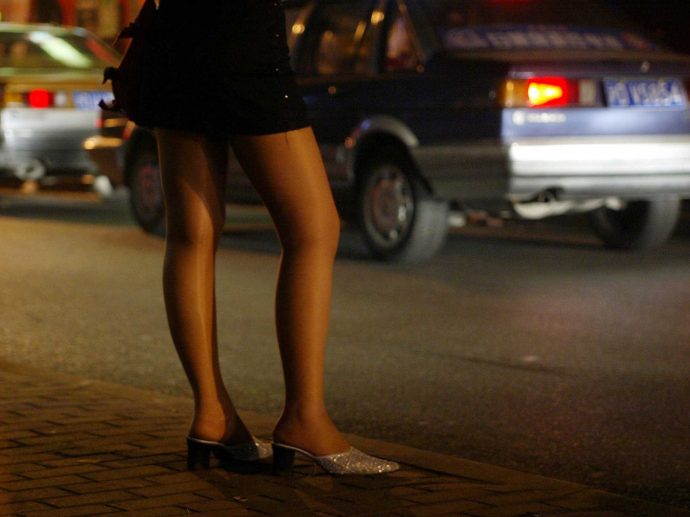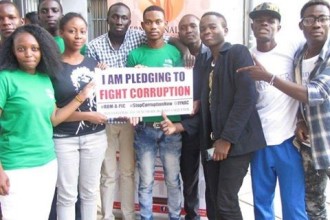Over the past two decades the Western European prostitution market has become increasingly globalized and quite popular among young African women. The United Nations Office for Development Co-operation suggests that sex trafficking to Europe heavily affects communities in west and east Africa where women and young girls are frequently smuggled in to keep the illegal sex businesses in Europe running.
The UN’s International Organisation for Migration claim Cameroon and Nigeria are prominent suppliers of black African prostitutes catwalking the streets of Europe’s major cities. According to the New African press, the principal areas exporting prostitutes to Europe in Cameroon are said to be the Littoral, Centre, South, West, Southwest and Northwest regions. As for Nigeria’s 90% of the victims, the Migration Policy Institute suggests victims tend to be predominantly teenagers most of whom hail from Edo and Delta states. A survey conducted by the Women’s Health and Action Research Centre in Edo’s capital Benin City several years ago showed that, one in three young women had received offers to go to Europe. In aspiration for a better life overseas, most of these women and young girls are deceived by traffickers, posing to be philanthropists, honest business men or women. Ignorantly, the victims are dragged into the savage world of prostitution in foreign countries under horrifying and deadly conditions. Some researchers identify the particularly disadvantaged situation of women, rapid urbanization and economic degradation in these sub-Saharan countries, as the main reason why most women and young girls seek to escape their hardship. Much of the explanation, however, is said to lie in a so called self-reinforcing mechanism that comes into force once a migration flow has been initiated. When the necessary networks, infrastructure, and expectations have been established, researchers believe migration flows tend to increase, even if the initial movement is believed to be a matter of coincidence. Ensuring a better future for one’s family has been identified as a principal motivation for immigration within and outside the trafficking networks.
Discover how She leads Africa is taking over Nairobi
“When I was working in Nigeria, a friend told me that she had a friend, a woman, who arranged visas to Europe for girls who wanted to study. I knew what they (traffickers) wanted me for in just a few hours after I arrived here and I was trapped. How could I escape, with no money, no car, no airplane ticket? … I didn’t even speak the language! Oh! It was impossible! … I wrote one day to my family and I told them the truth…I have not received even a common letter from them.” said Charlotte, a prisoner in Rebbibia prison in Italy during an interview with anthropologist Asale Angel-Anjani.
Generally, the trafficker or so called “sponsor“is known as the Madam. This individual finances the journey and makes a pact with the victims, obliging repayment in exchange for safe entry into Europe. Typical amounts are presumed to be between US$40,000 and US$100,000. When victims undermine the pact, black magic is used to threaten them and keep them committed to the initial agreement. Also, the possibilities of being promoted to the position of the Madam in the trafficking organization, entices most victims to comply with the pact. In Italy for instance, Madams are reportedly usually between 25 and 35 years old. In the Netherlands, where many Nigerians prostitutes arrive as minors, some become madams around the age of 20.
Find out what entrepreneurs think about female leadership roles on the continent
According to some Nigerian and Italian researchers, due the rising difficulties of travelling to and settling in Europe in the early 1990s, prospective emigrants were forced to be increasingly dependent on large loans. Coupled with the lucrative Italian prostitution market, this provided the perfect opportunity for traffickers. Young women were promised good jobs and lured into prostitution to repay their debt. In Italy, Nigerian sex workers are usually street prostitutes and constitute the low-wage end of the prostitution market. Their places of work are often located in the suburbs or along intercity highways. In the Netherlands and Belgium, Nigerian prostitutes are more likely to work in the “big cities’ red-light districts.”
Nowadays one would talk of digitalized sex or better still cyber prostitution. Advanced technology has made it very easy for sex workers and traffickers to expand their businesses even without physically leaving their countries. With the iPhone or iPad for example, the illegal sex business has been made extremely easy and can be done comfortably within the confines of one’s bedroom. Instagram and Snapchat are notorious for containing obscene pictures and videos, some of which are being used for the purpose of attracting potential sex partners in exchange for payment. In as much as one might view cyber prostitution as a very public and ‘care free’ type of prostitution, it is usually not the case. Some women and young girls who are generally shy and/or afraid of being identified as prostitutes tend to engage more in cyber prostitution to maintain a low and unknown profile in the sex business. The identity of these individuals is usually hidden (face blurring for instance) while the sexual activity is going on. Clients usually get in contact with the sex workers via phone, email or through social media. During the exchange process, arrangements could be made to meet up at a particular location where the sexual activity eventually takes place. The clients who are more interested in nude/pornographic pictures or videos and not necessarily sex, generally pay these young women immediately after acquiring the requested material. Even though poverty and hardship stand out as the driving forces of this despicable act, it would be fair to acknowledge the selfish desires and impatience of some young women who would do anything to be like friends or celebrities on TV or on social media. It is not uncommon to see such young women flaunting the ‘fruits of their labour’ in the form of designer clothes, shoes, bags and expensive jewelries on social media. This act further entices young girls who look up to these women as role models thereby, making them easy targets of sex trafficking. This keeps the snowball rolling.
Nevertheless, engaging young women in income generating activities; promoting inclusive and affordable education coupled with massive sensitization campaigns, would go a long way to build self-confidence and self-worth in these young women, expose local traffickers, breakdown existing trafficking networks and sway potential victims from seeking ‘greener pastures’ beyond borders.





